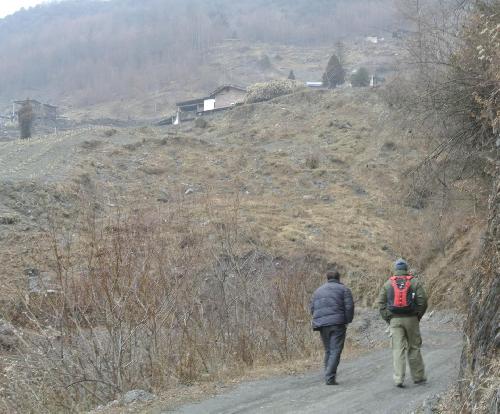What is a great way to ensure that conservation has no support at all from the public? Hand nature over to centralized bureaucrats and create environmental groups full of lawyers to sue to make sure people are treated as the enemy.
Or just have centralized government tell people what to do, as in the communist dictatorship China.
Yet there is a better way. Communists love cold, hard cash just like capitalists, and conservation programs that compensate citizens for changing habitat-damaging behavior really work, according to results of a program in China that aims to restore forests and habitat for the endangered giant panda.

The researchers examined China's National Forest Conservation Program (NFCP), which was fully implemented in 2001 in the Wolong Nature Reserve, which is a key home to the giant panda. Residents were enlisted to monitor the reserve's forest to prevent unauthorized harvesting of trees.
The program also enlisted the help of people who lived on the outskirts of Wolong, but those people were paid less, and had to travel farther to monitor their assigned sections of Wolong.
All forests aren't created equal. Some forests foster abundant growth of bamboo, which is the mainstay of the panda diet. The researchers put together a unique habitat model of forest quality by examining remote sensing data in ways that separate trees from the bamboo that grows beneath.
They also refer to earlier CSIS-based studies that show what the habitat would have looked like had no conservation plan been implemented - a downward trajectory of habitat degradation and loss.
The results of this study show that suitable panda habitat did improve between 2001 and 2007 (before the catastrophic Wenchuan earthquake which damaged habitat in and around Wolong). The analysis also shows that the two townships whose residents were paid more for their efforts also saw more habitat recovery than areas outside the reserve whose residents were paid less.
In the study, the greater payments mattered. Thus, the payment for ecosystem services approach only works when it provides enough economic incentive to local people to encourage them to actively participate in conservation.
There you go, conservationists. The free marker fixed that for you.
Source: Michigan State University






Comments